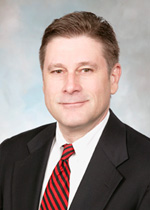E-Medical Records Are Creating Dangerous Errors Indicates Arkansas Injury Lawyer

SHARE
FULL STORY
SHARE
Little Rock, AR (Law Firm Newswire) November 6, 2013 – E-medical record keeping is supposedly a lifesaving, accurate system to keep patients safe. A software error has created a recall situation.
“Just recently, UnitedHealth Group Inc. issued a recall for their software, the Picis ED PulseCheck, used in hospital E.R.s. It affected hospitals in 20 states. The reason for the recall? An error that caused the system to eat physician’s prescription notes out of patient’s files,” outlined Michael Smith, an Arkansas injury lawyer.
It was discovered that some versions of the software contained a glitch that did not print medication information and did not add information to patient’s charts. The software in question is in use in 35 hospitals across the nation, including Florida, California and New Jersey. Although there were no reports of any patients being harmed, and each facility got a digital fix, the bug raised many questions about how safe the technology really is.
“What glitch could come along next? Would there be any more programming errors or incompatible operations within the system? Human errors? No one can say for sure, but it certainly indicates that software errors may endanger patients, and this at a time when e-medical records are being lauded as the saving grace of health care reform,” Smith added.
Without a doubt, software for e-health records is a hot selling item, raking in $24.2 billion in 2012 alone. All signs indicate it is expected to grow, on average, 10 percent per year, through 2015, at which point it is expected the demand will drop as health care reform is firmly in place. The major loophole in this kind of a situation is that medical device makers must report any safety issues to the Food and Drug Administration (FDA), but those who design and sell e-health record software do not have to report errors.
“In this instance, the software maker did report the error, likely because it was glaringly obvious. The real issue is what about the glitches that are not so obvious and go unreported? This kind of error could open a whole new frontier relating hospital errors,” Smith added. Accurate notations on a patient’s chart, written by the doctor, are critical to the patient receiving good care. If there is a mistake in medications, it could result in serious harm to a patient or death.
There is good news, mixed with bad news. Thanks to hospitals using computers to order prescription drugs, over 17 million drug errors do not happen. The computerized system for drug ordering cuts down on the risks associated with deadly drug combinations and illegible handwriting, says the Journal of the American Medical Informatics Association.
Medical malpractice,hospital errors and computer glitches seem to be inevitable. “Largely due to the human factor,” said Smith. “If you feel you have been a victim of a medication error, make sure you connect with an experienced hospital error attorney and find out what your rights are.”
Learn more at http://www.arkansaslawhelp.com/
